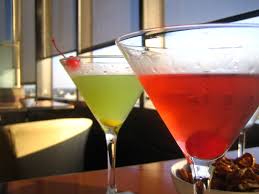
Newswise — Epigenetics refers to external changes to DNA that turn genes “on” or “off.” These modifications do not change the sequence of the “letters” in DNA, but are physical changes that affect how cells "read" genes. Researchershypothesized that alcohol’s effect on one kind of epigenetic change - called DNA methylation - oncertain genes is associated with the motivation to drink alcohol in binge and heavy drinkers. Methylation is a change in the DNA that reduces gene expression. They measured changes in the methylation of two genes that have been implicated in the control of drinking behavior or the response to stress: the period 2 (PER2) and proopiomelanocortin (POMC) genes. Methylation changes were measured in blood samples drawn from groups of non-smokers who were moderate drinkers, binge drinkers, or heavy drinkers. These drinkers also participated in a laboratory study that measured behavioral alcohol motivation. During the three-day experiment, the participants experienced stress-related, neutral, or alcohol-related mental images on consecutive days. After this imagery, participants were exposed to alcoholic beer cues followed by an alcohol taste test to assess their motivation to drink. The expression of the PER2and POMC genes was measured in blood samples immediately after the behavioral experiments.
The researchers found that there was greater methylation of the DNA in the two genes, along with lower expression of the genes in the blood samples from the binge and heavy drinkers than those from the moderate drinkers. Greater PER2and POMCDNA methylation was associated with a greater subjective desire for alcohol immediately after presentation of the cues and after presentation of the alcoholic beer, and for alcohol consumed during the taste test.
The authors concluded that there is a relationship between binge or heavy alcohol drinking and DNA methylation and changes in POMCand PER2genes. This is consistent with prior findings of a role for these genes in the control of drinking behavior and the stress response. The changes were also associated with a greater subjective and behavioral motivation for alcohol. These initial findings may further develop into a predictive biomarker of the risk for binge or heavy drinking.

